International Symposium: Never Demolish !?
Symposium about the pros and cons of a total demolition moratorium and what that would mean for the profession of architecture and spatial planning. With Peter van Assche, Michelle Provoost, Mike Emmerik, Wouter Deen, Sanne van Manen, Dimitri Minten, Ludwig Engel and Kristiaan Borret. Thursday 14 March 2024, 13:00 - 17:30.
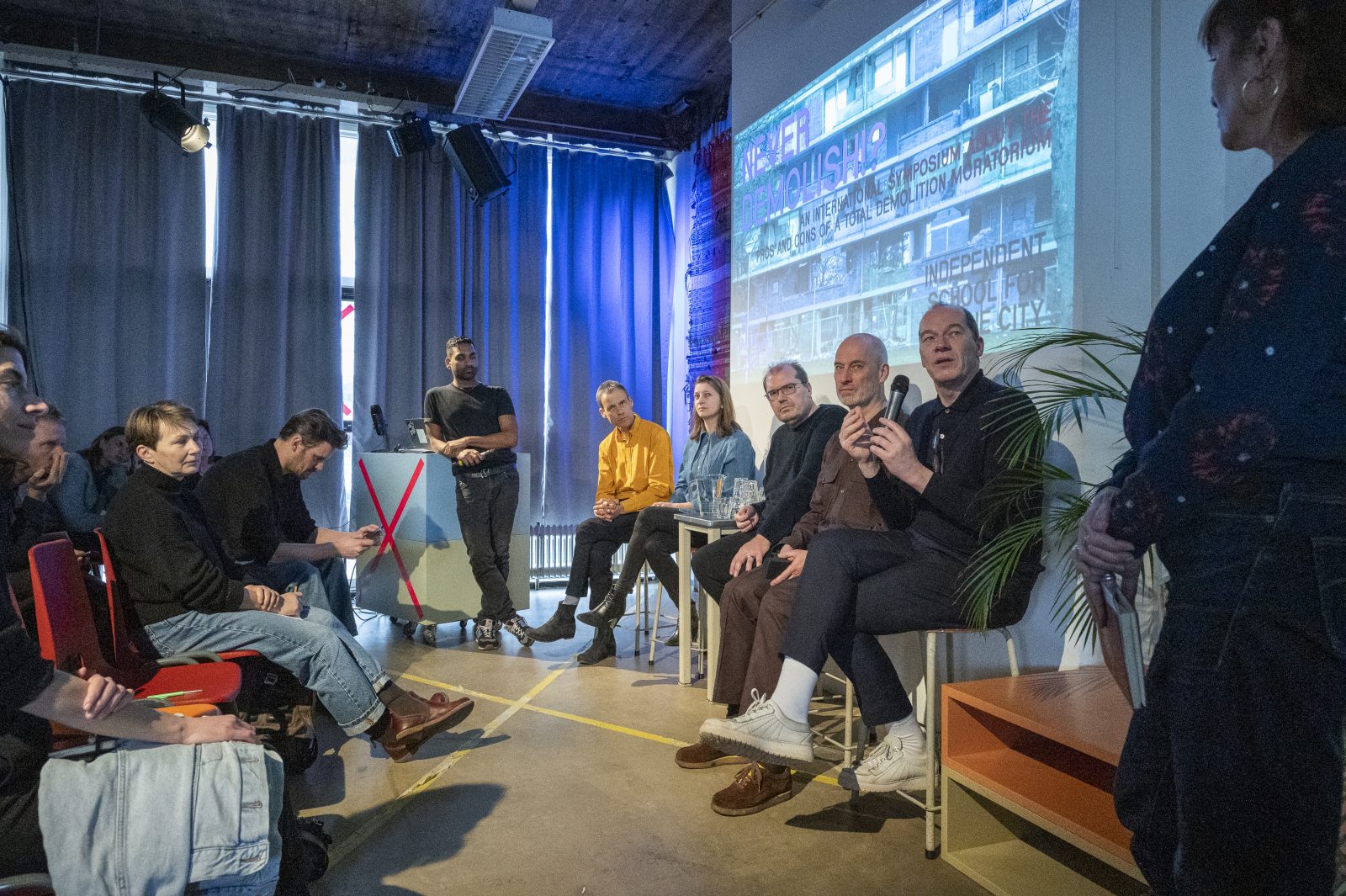
Never Demolish !?
Some twenty years ago a movement started to stop demolishing buildings altogether. What started out as a fringe statement, that was sometimes mistaken for being merely provocative but was actually deadly serious and meant to be taken entirely at face value, has now blossomed into a serious position to be taken by building owners, architects and planners alike.
Whereas twenty years not demolishing an existing building when confronted by a functional need, was arrived upon when the existing building seemed excessively precious, historically important, large or otherwise ‘special’. Saving buildings for their intrinsic and unique value is however no longer the issue being discussed. The point now is that even – or especially – normal buildings, mediocre, ugly, banal buildings, i.e. all buildings, should be saved. Not because they have a unique meaning, beauty, size or shape, but because they are already there, and demolishing them would mean wasting material, capital and embedded CO2, in order to spend even more material, capital and CO2.
There is a radicalism to this new position in designing, building and development that seems too dumb to be true. In fact it punctures the balloon of the rationality equating change and progress with the cycle of demolition and construction, with a filtering process of historical architecture that is too unique to demolish. In this way we have learned to accept our cities as an everchanging sea of buildings that get replaced according to the clock of technical progress, material degradation and financial depreciation, with some islands of historically important relics, frozen in time.
Architecture, with its devotion to the uniqueness of design objects, and to technological modernity, is doubly implicated in this ever changing and ever modernising city. But it is out of architecture that comes the simple but shocking proposal to adopt conservation as a the default position, and deploy their creativity and technological resources to adapt, not to replace. This is a conceptual leap that found its first markers with the statements, and the projects to back them up, by the French office of Lacaton & Vassal, when they published their manifesto against demolition in 2004, alongside with concrete projects to not demolish the high-rises from the sixties and seventies in the French banlieues, but to make them better, bigger, lighter, more beautiful and liveable, sometimes without even temporarily removing the inhabitants. L. & V. continue to hammer their statement home with unambiguous statistics that illustrate the absurdity of the demolition-construction cycle, for example that since 2003 2,98 billion Euros have been spent by demolishing 113.200 houses, while 12,64 billion has been spent on building 105.000 new ones, meaning that 15,62 billion has been spent on a net loss of 5.200 houses. Lacaton & Vassal even went as far as stating publicly that they would any job that implies the demolition of existing buildings, firmly defining their position as ideological.
The symposium in Rotterdam can be seen as gathering of architects and developers who have all followed up on this radical departure and have brought it into practice from a whole range of different methodological positions, also with different levels of ideological intensity on the scale set by Lacaton & Vassal. Read more here
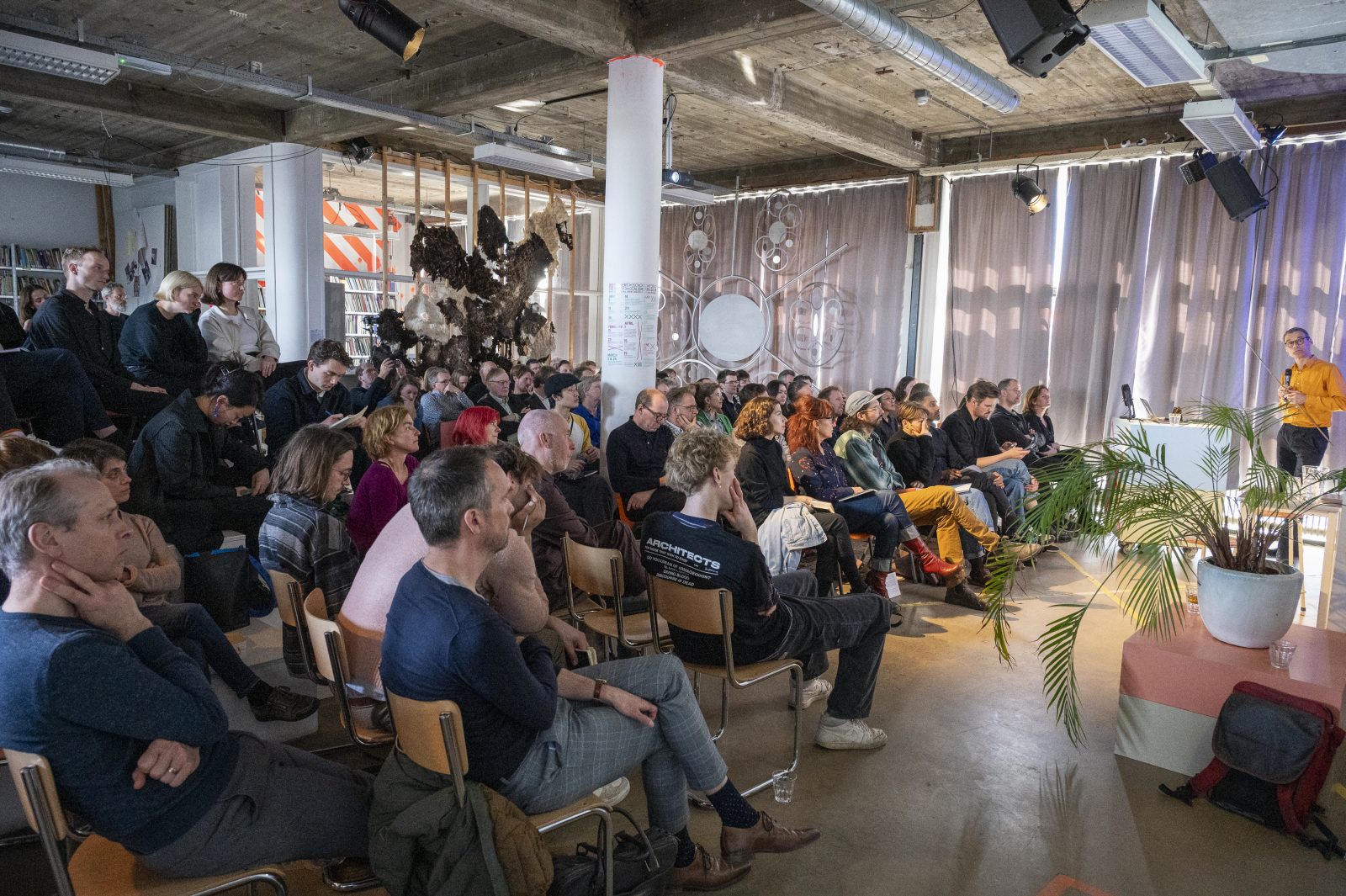
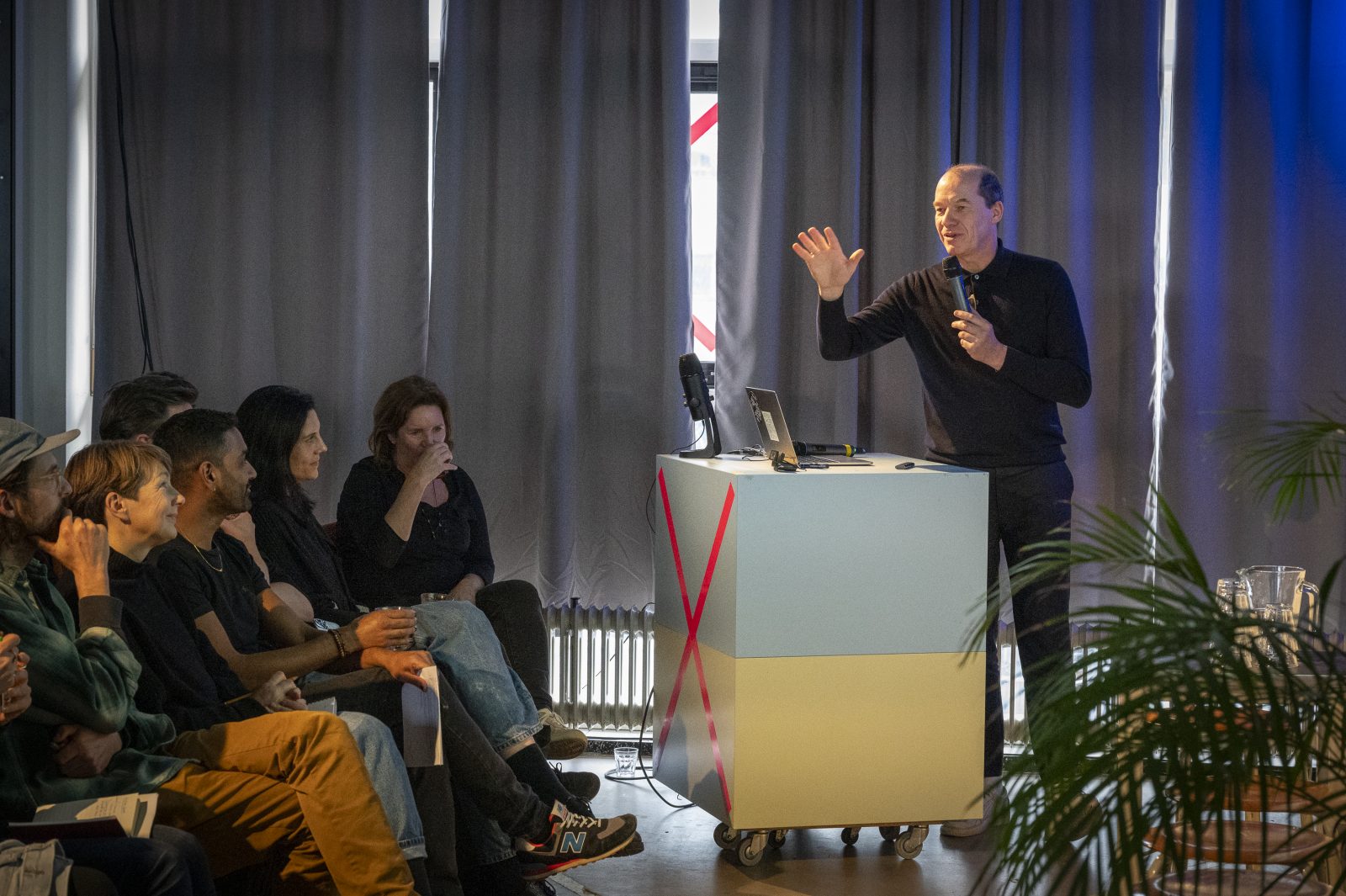
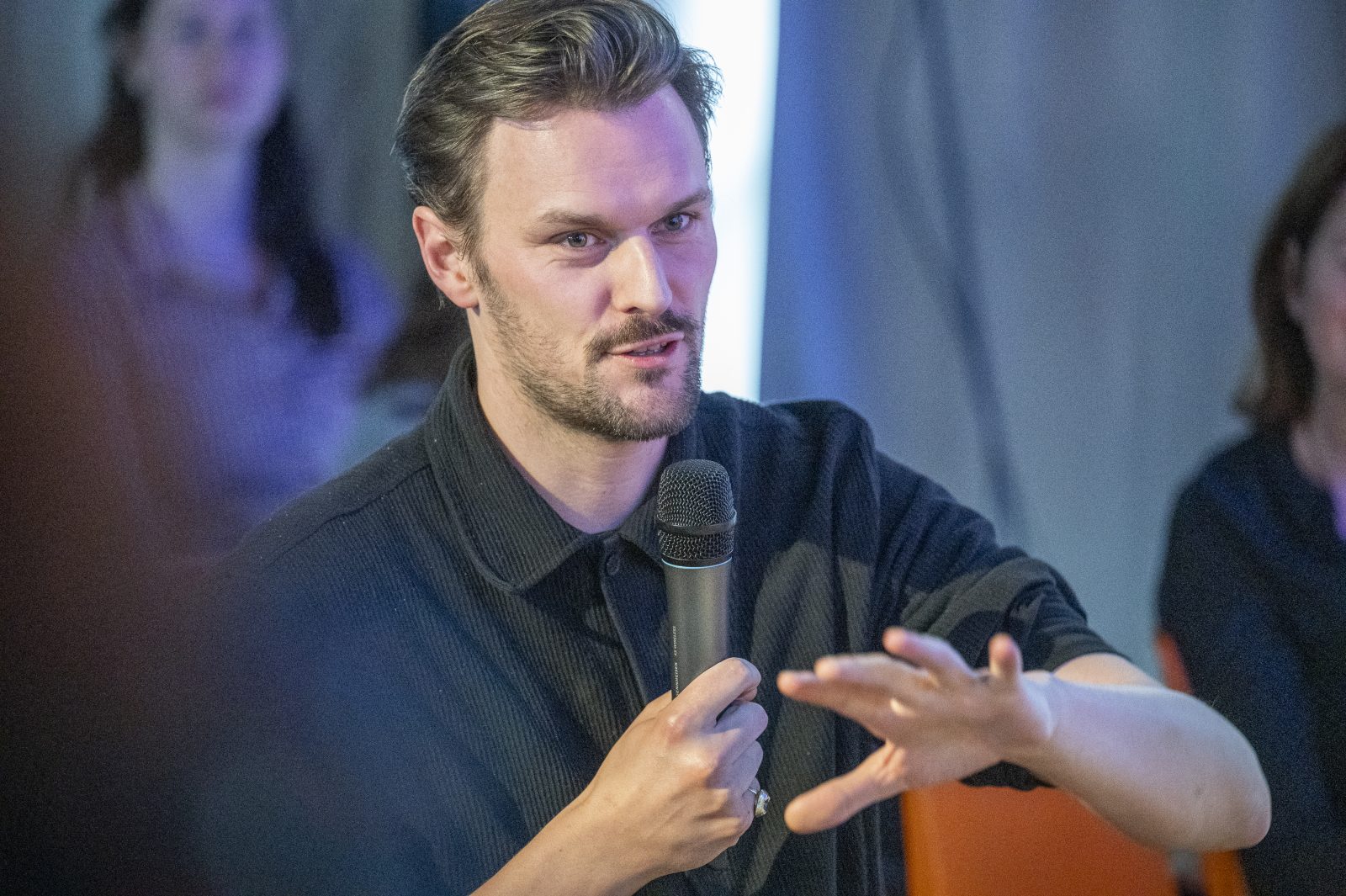
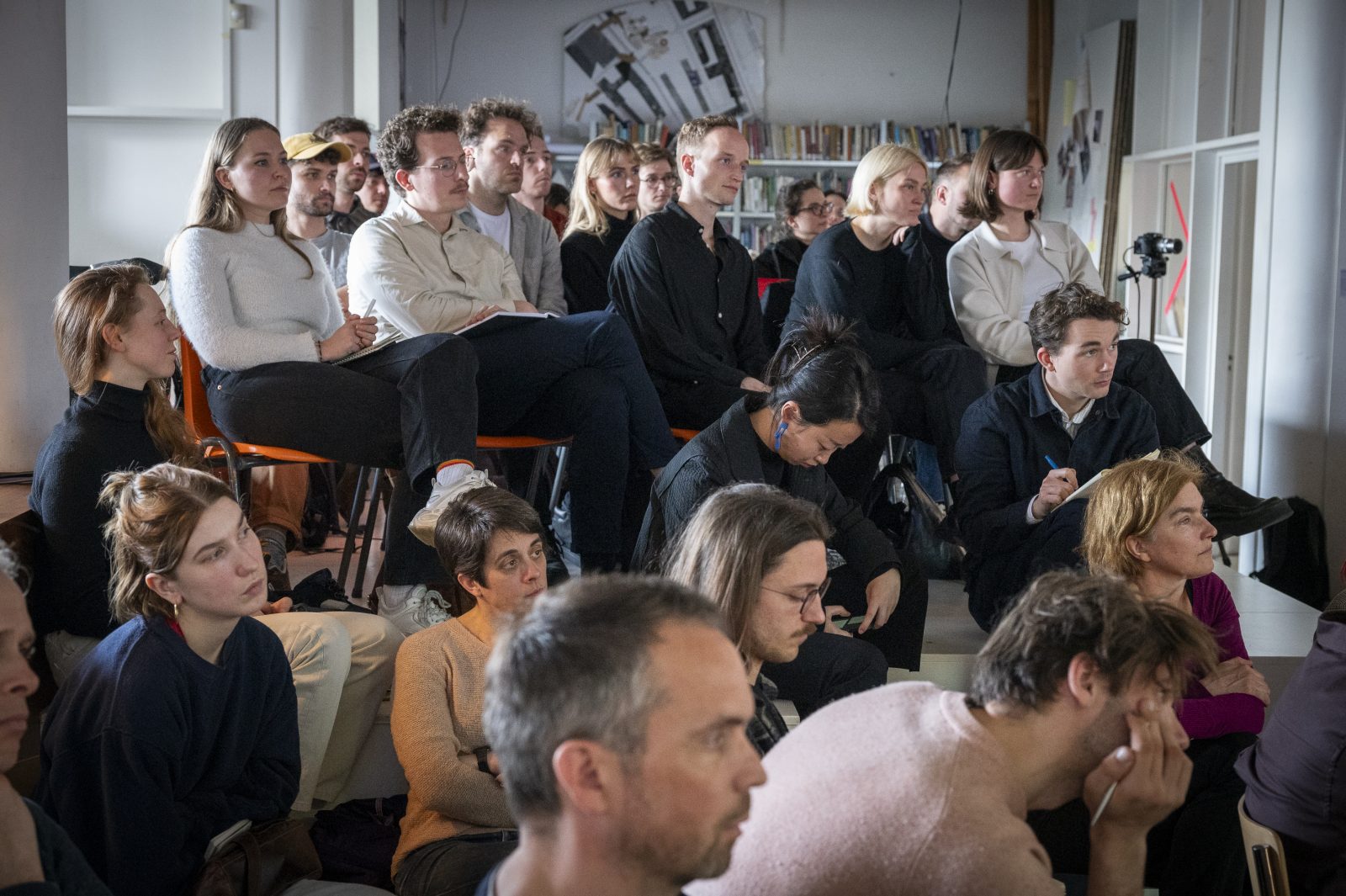
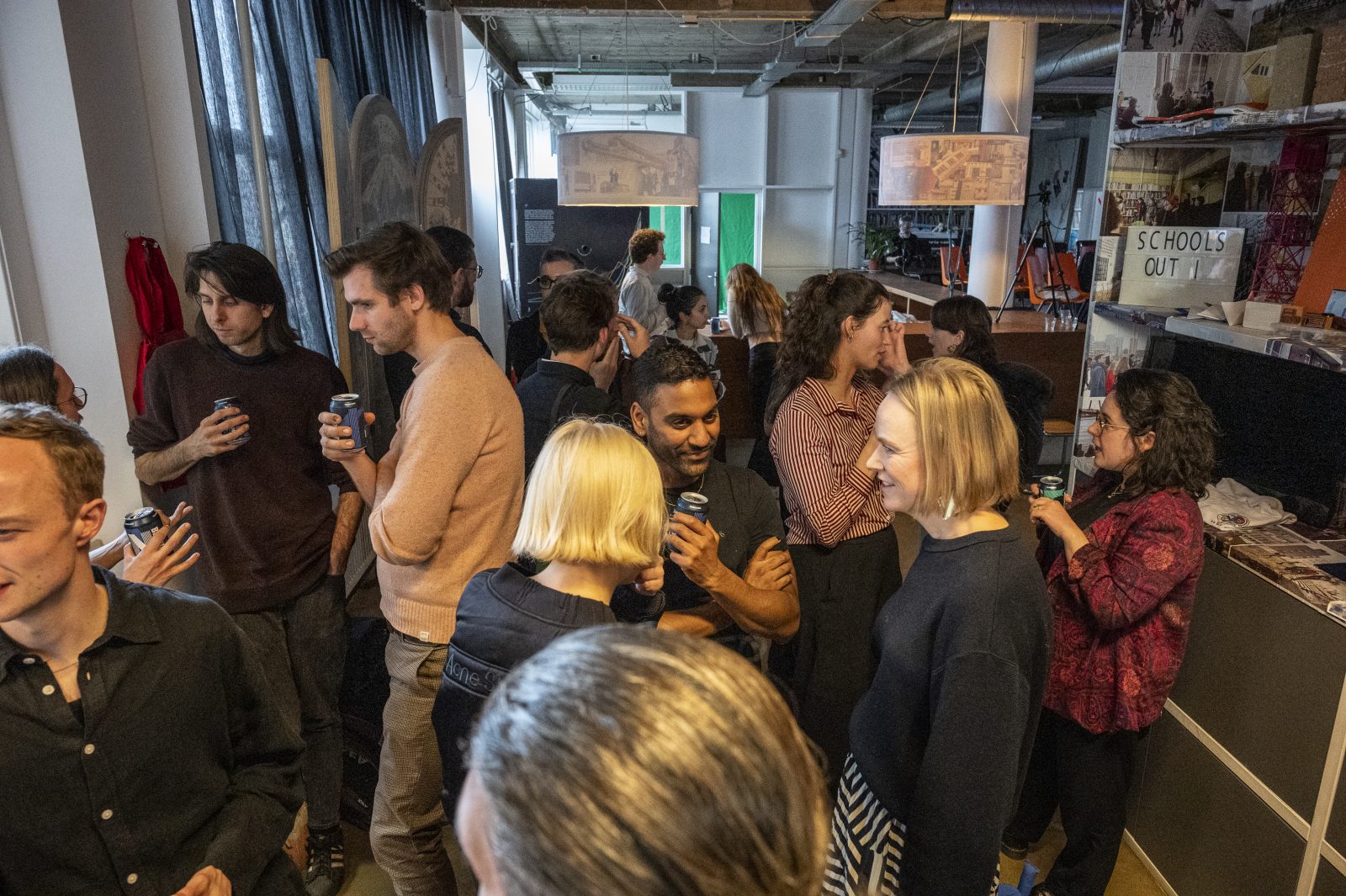
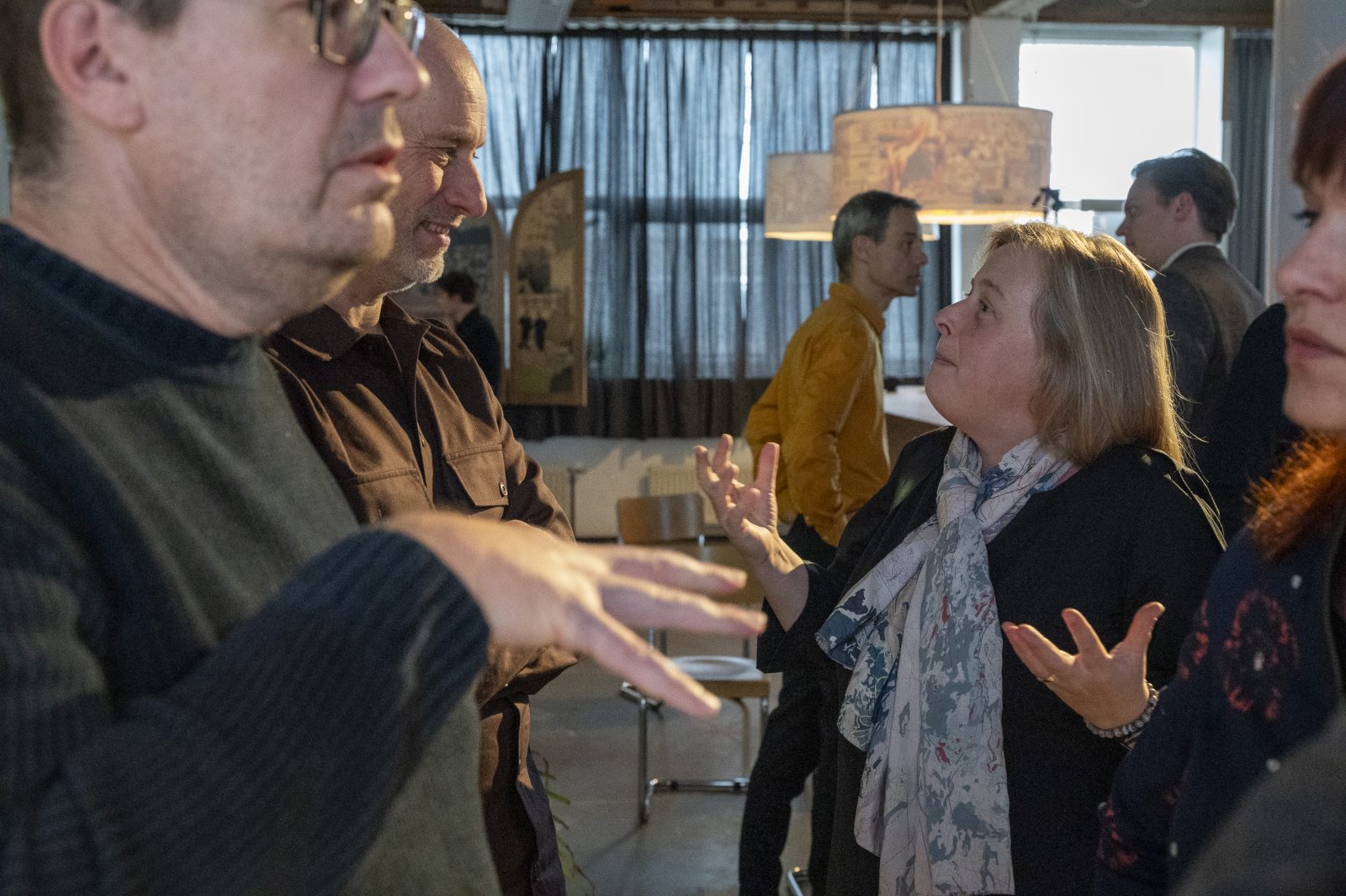
Programme
12:30 Doors open
13:00 - 13:30 Introduction
13:30 - 13:50 Lecture by Peter van Assche (Bureau SLA)
13:50 - 14:10 Lecture by Wouter Deen (Mevrouw Meijer)
14:10 - 14:30 Q&A
14:30 - 14:45 Break
14:45 - 15:05 Lecture by Sanne van Manen (Platform Woonopgave)
15:05 - 15:25 Lecture by Dimitri Minten (RE-ST)
15:25 - 15:45 Q&A
15:45 - 16:00 Screening film House Europe by Ludwig Engel + Q&A
16:00 - 16:20 Lecture by Kristiaan Borret (Bouwmeester Brussel)
16:20 - 17:00 Panel conversation with all speakers and audience
17:00 Drinks
About the speakers
Peter van Assche
After beginning his career in science and experimental mathematics, Peter van Assche transitioned into architecture and is now the founding principal of bureau SLA, an Amsterdam-based firm focused on the necessity of transitioning to a circular economy through design. The studio does not wait for commissions to be given but builds and develops in the city in an innovative way — from their own initiatives and with their own manpower. By designing, researching, inventing, and building the full potential of material use, energy, waste flows, smart living & working and development processes are discovered - and realised. Peter van Assche is professor Architecture and Circular Thinking at the Academy of Architecture Amsterdam, and supervisor for the Utrecht station area. He received a Master of Information Technology (cum laude) from the Technical University Eindhoven and obtained his architecture degree from the Rotterdam Academy of Architecture. Peter is co-founder of Pretty Plastic, a company that successfully produces building products from plastic waste. He was visiting professor in Erfurt (2019), at Cornell University (2020, 2022), and at the Karlsruhe Institute of Technology (2022, 2023). Peter van Assche was nominated Architect of the Year in 2023.
Wouter Deen
Wouter Deen is project leader for design research projects at Mevrouw Meijer. Wouter Deen is an architect and has a lot of experience with the design of schools. With the HDduurzaam agency, he focuses on making our living environment more sustainable, from energy savings in existing buildings to neighborhood projects for greening and local energy generation. He also regularly teaches at TU Delft and Eindhoven.
Sanne van Manen
Sanne van Manen is an architect and one of the initiators of the Platform Woonopgave (Housing Platform) which launched in 2023. Platform Woonopgave is a growing collective of architects, urbanists, developers, builders and policy makers from the government searching for alternative affordable and sustainable solutions to the Dutch housing crisis. The platform started with a critical analysis of the current status of the crisis. This analysis is open source and can be downloaded and used (under creative commons license) by everybody. One of the first conclusions that can be drawn from the analysis is that we first have to ‘find’ houses, before building them new. Through transformation, renovation, splitting and expanding we can ‘find’ over 1,5 million homes in the existing building stock.
Dimitri Minten
Dimitri Minten is an architect and co-founder of RE-ST, an architecture and research agency from Antwerp that seeks solutions for urgent and complex spatial issues. Through their projects and research processes they search for critical insights and visions on the built and open space that remains to us. This leads to the formulation of new challenges and design assignments. Their position is that not every spatial need necessarily has to lead to a new building: 'The most sustainable building is the one that does not have to be built.' The research into the benefits of not building in 2014 was an initial search for a conscious resistance to building, and also inspiration for several design processes of ongoing architectural projects. In 2020, Wanderspace / Zwerfruimte (©2020, NAi publisher) was published, in which the methodology for detecting and dealing with underutilization of space was described in detail. He is also a lecturer in cultural studies and repurposing at Hasselt University (Faculty of Architecture & Arts) and a member of the City Studio of the city of Hasselt.
HouseEurope! by Ludwig Engel
Do you rent an apartment or own a building? Are you concerned about the environment or involved in the building sector? Well, you should be. Speculative real estate practices and the harm they cause affect everyone. The threat of demolition looms over nearly every building, fueled by financial speculation that promotes demolition and new construction. This leads to a scarcity of affordable homes, job losses, and environmental damage. Therefore, we urgently need a socio-ecological transformation of contemporary building practices that extends beyond materials and energy and considers the values Europe upholds as a society. The European Citizens’ Initiative HouseEurope! advocates for regulations that acknowledge and safeguard the value of existing buildings. HouseEurope! campaigns for EU-level legislation that prioritizes the preservation, adaptation, renovation, and transformation of the existing building stock over demolition and rebuilding driven by financial speculation.
Kristiaan Borret
Kristiaan Borret is the bouwmeester – maître architecte (BMA) of Brussels Capital Region since 2015. The bouwmeester is a government official who promotes spatial quality in urban development projects in Brussels from an independent position. He previously held the same position in Antwerp (2006-2014) and is currently also working for the City of Amsterdam as supervisor for two major urban transformation areas Oostenburg and Hamerkwartier. Kristiaan Borret is professor of urban design at Ghent University since 2005.